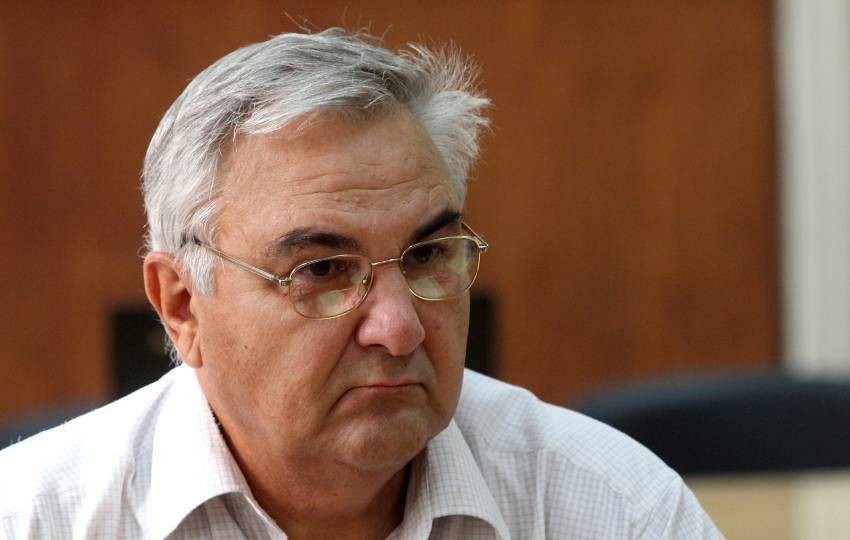Different professional groups in Bulgaria have been organizing protests with one sole demand – higher pay. The rise in the prices of electricity and heating, and in food prices has been a major challenge to family budgets. According to some data, as winter fast approaches the number of energy poor consumers in the country has exceeded 2 million. The political instability in the country, and the uncertainty of a future government are adding pessimistic hues to the situation, yet the draft state budget has to be submitted by 31 October.
Caretaker Finance Minister Rositza Velkova and her team have drafted three versions of the budget for 2023. The baseline version sets down a 6.6% deficit, a new government debt of almost 16 billion Leva and an inflation rate of 6.4%. The pensions threshold is to remain at 3,400 Leva a month, the minimum pension – at 467 Leva a month, to be raised to 523 Leva as of 1 July. The minimum monthly wage is to remain at 710 Leva. The inflation rate budgeted for is 4.6%, and the economic growth rate – 1.6%.
Financial analyst Prof. Garabed Minassian describes the draft budget as “inertial”, and says that what the country needs is an active fiscal policy:

“Fiscal policy has multiple aims and tasks. One of them is to keep social stratification within acceptable bounds. This is connected with reducing disparities in the payments received by the upper and by the lower-income strata. We are constantly seeing such social tensions flare up in different spheres, and the Ministry of Finance has to brace up and put out the fires instead of planning ahead. One other very important thing is that the Ministry of Finance, via its fiscal policy, must create conditions to boost economic activity and increase economic growth.”
According to the macroeconomist, Bulgaria is the country with the most extreme social stratification within the EU. The coefficient gauging this indicator stands at 40%, the average for the EU being 30%. The question is – what is this extreme social stratification due to, and does the state budget contribute to its formation? “It is not a question of putting out fires after people have come out into the streets, it is a question of planning for steps that will prevent further stratification,” the analyst says.
“Usually, spending is put on hold during the year, which is convenient for the administration, and at the end of the period money is “poured out” onto the market to be spent on all kinds of things. Capital expenditure is practically always neglected in this country, i.e. the idea of pursuing a targeted and well thought-out policy with regard to public finance is thrown out of the window. But that is something we need because the country is in dire need of developing all kinds of infrastructure projects – roadways, military infrastructure, projects in education, medicine, culture and sports. The lack of such infrastructure conveniences is a hindrance to the investment process.”

The insufficient level of investment activity in the country, and the export of local capital abroad are two of the biggest problems for Bulgarian society, Prof. Minassian says:
“For example, last year we exported Bulgarian capital amounting to EUR 7.7 billion, or two-thirds of the amounts invested made in the country. According to the National Statistical Institute report for 2021, there is a rise in all things – a 7.6% rise in the GDP, a 6.7% rise in consumption, a rise in exports, in imports etc. But the only sphere in which a decline has been registered is investments – they are down by 8.3%. An investment decline is also expected in the budgetary execution for the current year – by 4%. So, it is only natural to ask ourselves – what kind of economy is this, in which investments are going down significantly, while the GDP and consumption are going up?”
Interview by Snezhana Ivanova, Horizont channel, BNR
Compiled and edited by Elena Karkalanova
Photos: BGNES - libraryFrom March 9 to 11, 2025, Inter Expo Center in Sofia plays host to the 41st edition of Holiday & SPA Expo. The event, organized with the support of the Bulgarian Ministry of Tourism, traditionally becomes a meeting point for leading experts,..
The budget for 2025 is feasible and will likely be the last one in Bulgarian leva, Minister of Finance Temenuzhka Petkova said in an interview with bTV. The draft law on the state budget for 2025 has been prepared without increasing existing..
A Bulgarian-Ecuadorian Business Forum will be held in Bulgaria, jointly organized by the Bulgarian Chamber of Commerce and Industry and the Pro Ecuador office in Italy, accredited for Bulgaria. The event will take place on March 13, 2025 at the..
From March 9 to 11, 2025, Inter Expo Center in Sofia plays host to the 41st edition of Holiday & SPA Expo. The event, organized with the support of the..

+359 2 9336 661
